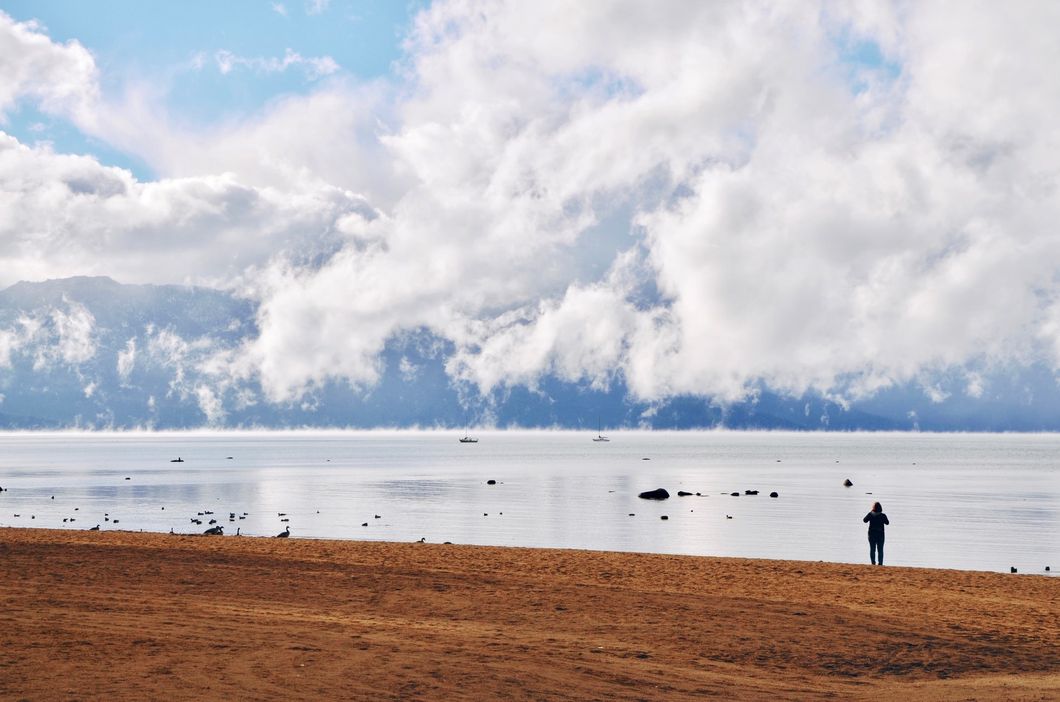The coronavirus pandemic has flipped the world on its head in just a few short months. Around the world, almost every aspect of peoples' everyday lives is unrecognizable compared to the 'before.'
This is an uncertain and nerve-wracking time for everyone, and we can often feel as though there is nothing good that could possibly come out of it all. Cities, campuses, and workplaces worldwide are essentially empty. However much it may feel like the world is in a standstill, though, nature continues to move forward and is probably quite grateful that humans are not able to interfere.
* * *
Widespread viruses such as COVID-19 are not a new occurrence in the history of human civilization. Though the statement that a pandemic has occurred exactly every 100 years since the year 1720 is false, it is true that there have been major pandemics at least once per century for several hundreds of years in human history. It is not difficult to make the connection between the Spanish flu, cholera, coronavirus (among others), and human population growth and the stress it places on the environment.
Looking at the origins of the coronavirus, scientists are fairly certain that bats were the main carrier of the virus because they have adapted very strong genetic defense mechanisms against harmful diseases in a way that other species, including humans, have not. This is not to say that bats are to blame, per se. Experts are in consensus that this outbreak did not begin thanks to a Chinese person eating "bat soup" (a very racially charged and harmful rumor). Bats simply develop these adaptations through hundreds and thousands of years of genetic trial and error. Naturally, these viruses would not— and should not— be able to pass from themselves to humans.
Research done by Peter Daszak, President of Ecohealth Alliance, an environmental- and health-focused non-profit, shows that human activities such as population growth, land management, and agriculture contribute greatly to the chances of an emerging infectious disease (E.I.D.) occurring. The way in which humans interact with the environment plays a huge role in how these diseases progress, and there are certainly lessons to be learned about the dangers of the social and agricultural infrastructure we live in, and how the constant progress that humans seek often just comes back to punish us.
* * *
Human activity clearly causes many issues in the natural world, which is why it is not surprising to find that nature has been flourishing in many ways since a majority of this activity has been put on pause.
In several cities around the globe, air pollution has dropped by as much as 50% since the start of the coronavirus lockdowns and restrictions. This is thanks to the drastic drop in transportation, flights, and industrial activities that contribute a large amount to the greenhouse gases— such as nitrogen and carbon dioxide— in the atmosphere.
Satellite images from the European Space Agency show just how much of a difference that lockdowns due to coronavirus are having on Venice's iconic waterways, which are currently looking much more pristine and less polluted than this time last year.

This is not a lucky coincidence. The extremely damaging impact that humans have on the environment has become clearer year by year for several decades, and now that it has had some breathing room to function without humans getting in the way, its sense of relief is almost palpable. Almost more important than this, however, is the way that this pandemic is changing the way people view the environment. We are taking the time to slow down and consider what is truly crucial in our lives. The outside world seems more sacred now than ever, and having the time to explore it while appropriately distancing from others is a comforting habit that most people are turning to. It is crucial that humans learn from this experience that the earth we live on does not need us in order to function; indeed, the opposite is true.
Take the time to soak up the springtime sun and blooming flowers before they are gone for another year. Ponder the subliminal messages that nature is trying to send us, and respect its amazing and terrifying power. Do your best to let these times reach your soul and mindset in a way you did not expect so that civilization can build a new and more sustainable 'normal', rather than just returning to exactly how it was before.

















